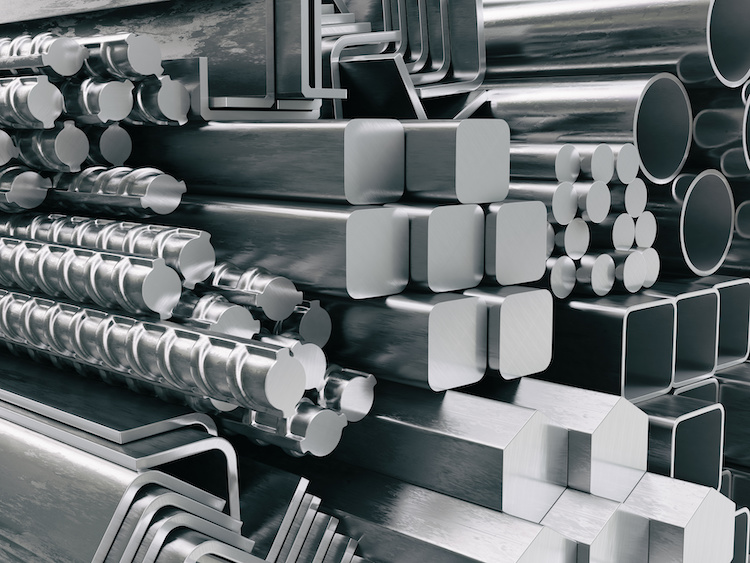The Ultimate Handbook on Personalized Steel Construction Solutions for Structural Projects
In the realm of architectural jobs, the significance of custom steel construction services can not be overemphasized. From the fundamental understanding of steel construction fundamentals to the complex procedure of picking the most ideal products, every action in this journey plays an essential role in the utmost success of a project.
Understanding Custom Steel Fabrication Basics
Looking into the principles of customized steel construction offers understanding right into the detailed procedure of changing raw steel into tailored structural parts. Personalized steel construction is a customized production method that involves cutting, shaping, and assembling steel products to produce distinct structures according to specific task demands. Recognizing the essentials of custom-made steel fabrication is essential for making certain the effective execution of architectural jobs.
The process typically starts with the evaluation of task requirements and style needs. This preliminary phase entails comprehensive planning and cooperation between fabricators, designers, and designers to establish one of the most appropriate method for making the steel elements. Accuracy is essential throughout the fabrication procedure, as also minor discrepancies can influence the structural stability of the end product.
Different techniques, such as cutting, welding, and shaping, are used to transform raw steel into the preferred structural aspects. Experienced producers make use of advanced equipment and devices to guarantee precision and uniformity throughout the fabrication procedure. Quality assurance actions are implemented to verify the honesty of the made elements before they are constructed on-site, guaranteeing conformity with sector standards and job requirements.
Picking the Right Steel Materials

First and primary, the kind of architectural task and its certain demands play a crucial function in figuring out one of the most ideal steel materials. Elements such as the load-bearing capability, environmental problems, and wanted life-span of the framework will certainly determine the quality and kind of steel that must be made use of.
Moreover, the physical residential or commercial properties of the steel, including ductility, strength, and weldability, should line up with the task's needs to ensure optimum performance and toughness (Alpha reo). In addition, considerations such as deterioration resistance, cost-effectiveness, and accessibility of the steel materials ought to additionally be taken into account during the selection procedure
Layout Factors To Consider for Structural Tasks
Architectural projects require meticulous interest to make considerations to make certain both functionality and safety and security are prioritized throughout the building process. When it comes to designing structural tasks, several essential variables must be taken right into account to assure the success of the endeavor. By very carefully taking into consideration these aspects during the layout stage, designers and designers can make sure the structural task's success from useful source conception to conclusion.
Improving Fabrication Procedures for Efficiency

Furthermore, applying lean manufacturing principles can dramatically improve efficiency in steel fabrication. By decreasing waste, enhancing process, and enhancing interaction between different groups her comment is here associated with the fabrication process, jobs can be finished extra promptly and with better requirements.
Moreover, developing an efficient production routine and process can aid in focusing on tasks, assigning resources effectively, and meeting job have a peek here due dates promptly. By having a clear plan in place and frequently keeping an eye on development, any type of prospective traffic jams or delays can be determined and attended to immediately, making certain smooth and effective manufacture procedures for architectural tasks.
Quality Assurance and Task Monitoring in Steel Construction
To make sure the effective execution of steel construction projects, precise quality assurance measures and efficient job administration methods are vital parts in maintaining precision and conference customer expectations. Quality control in steel fabrication includes extensive examinations at numerous stages of the manufacture procedure to confirm compliance with task specs and market standards. This includes material screening, dimensional checks, and weld examinations to ensure architectural stability and safety.
Task administration plays an essential duty in working with the numerous aspects of steel manufacture jobs, such as scheduling, source allotment, and interaction amongst group members. A distinct project strategy with clear goals, turning points, and timelines helps to check development and attend to any kind of possible problems proactively. Efficient interaction between all stakeholders, consisting of clients, engineers, service providers, and producers, is important for making certain that the project advances smoothly and satisfies the wanted high quality criteria.
Conclusion
To conclude, personalized steel fabrication plays an important function in architectural jobs by providing customized remedies using the best materials and style factors to consider. Performance in manufacture procedures, high quality control, and effective task monitoring are essential for successful results. By comprehending the essentials of personalized steel manufacture and implementing streamlined procedures, job groups can deliver long lasting and high-grade frameworks that satisfy the specific needs of their clients.
Custom-made steel construction is a specific manufacturing method that involves cutting, shaping, and putting together steel materials to create distinct structures according to specific project needs.To make certain the effective implementation of steel construction jobs, meticulous quality control measures and reliable job monitoring practices are vital elements in maintaining precision and meeting client assumptions. Quality control in steel manufacture entails rigorous inspections at numerous stages of the fabrication procedure to confirm compliance with task specs and industry standards (steel fixing).Job management plays a critical function in coordinating the numerous elements of steel manufacture jobs, such as scheduling, source allotment, and interaction among group members.In conclusion, personalized steel construction plays an essential duty in structural projects by supplying customized options using the ideal materials and style considerations